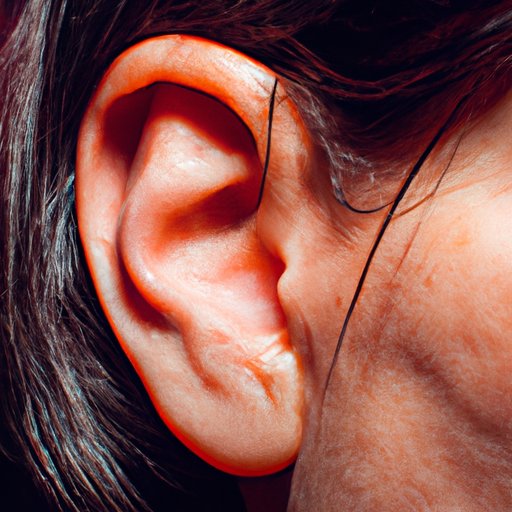
Introduction
Meniere’s Disease is a vestibular disorder characterized by episodes of vertigo, nausea, tinnitus, and loss of balance. First identified by French physician Prosper Meniere in 1861, the condition affects primarily the inner ear, but its exact cause has yet to be fully understood. It is estimated that between 0.2% and 0.5% of the general population suffer from Meniere’s disease, with the onset typically occurring between the ages of 40 and 60. Women are slightly more likely to experience Meniere’s than men, and in rare cases, Meniere’s can affect children.
Diagnosing Meniere’s Disease can be challenging, as its symptoms overlap with other vestibular disorders. However, there are several methods used by physicians to make a diagnosis. These can include hearing tests, head magnetic resonance imaging (MRI), electrocochleography, and vestibular evoked myogenic potential testing.
Causes of Meniere’s Disease
The exact cause of Meniere’s Disease remains unknown, but recent research suggests that there are several potential factors that can contribute to its development. These can include changes to the volume of fluid in the inner ear, viral infections, and autoimmune disorders.
Changes to the volume of fluid in the inner ear can impact the delicate balance of the ear, leading to the onset of symptoms such as vertigo, hearing loss, and tinnitus. This can be caused by a range of factors, including damage from injury or infection to the ear, genetic abnormalities, stress, or high salt intake.
Research has also suggested that viral infections may play a role in the development of Meniere’s Disease. In some cases, viral infections within the inner ear have been found during episodes of Meniere’s, and in other cases, patients with symptoms consistent with Meniere’s have been found to have a history of viral infections like herpes or influenza.
Autoimmune disorders may also contribute to Meniere’s Disease in some patients. This is because the immune system can mistakenly target the inner ear as a foreign body, leading to inflammation and damage.
Case Studies of Meniere’s Disease Patients
Personal case studies offer unique insight into the experiences of Meniere’s Disease patients and can help to shed light on the potential causes of the condition.
Many Meniere’s patients report feeling scared, frustrated, and alone, as the condition can be unpredictable, debilitating, and difficult to manage. However, there are coping mechanisms and tips that can help make living with Meniere’s more manageable. These can include maintaining a balanced diet, avoiding triggers like caffeine and alcohol, staying hydrated, and using mindfulness techniques to reduce stress and anxiety.
Personal case studies have also highlighted the potential connections between Meniere’s Disease and its various causes. For example, some patients report a clear link between increased salt intake and worsening symptoms.
Historical Development of Understanding Meniere’s Disease
Meniere’s Disease has a long and varied history, with early observations of inner ear disease dating back to ancient Greece. Prosper Meniere identified the specific symptoms associated with the disease in the mid-1800s, but it was not until the 20th century that medical understanding of its causes and treatment began to develop.
Over the years, clinical researchers have proposed various theories regarding Meniere’s Disease. These range from viral and inflammatory origins to anatomical imbalances or metabolic disorders.
Today, research examining the pathology of Meniere’s Disease is ongoing. In recent years, scientific studies have revealed a growing understanding of specific genes associated with Meniere’s and identified new treatment approaches that target cytokines and inflammation within the inner ear to mitigate symptoms.
Treatments for Meniere’s Disease
While there is no known cure for Meniere’s Disease, several treatment options can help manage symptoms.
Vestibular therapy is a common treatment approach that involves retraining the brain to cope with Meniere’s symptoms like vertigo and dizziness. Medications such as diuretics and steroids may also be prescribed to help reduce inflammation and fluid buildup in the inner ear. In some cases, dietary changes like reducing salt intake can help alleviate symptoms, as salt can exacerbate fluid buildup in the ear. In more serious cases, surgery may be an option when other treatments have failed.
Treatment plans for Meniere’s Disease often look different for each individual case, with customized approaches designed to address each patient’s specific symptoms and needs.
Holistic Factors Contributing to Meniere’s Disease
There are also several other holistic factors that may contribute to the development of Meniere’s Disease. These include genetic predispositions, environmental factors, and lifestyle factors.
Research has suggested that there may be a genetic component to Meniere’s Disease, with certain genetic mutations associated with the condition. Environmental factors like exposure to loud noises or toxins may also play a role in triggering the onset of Meniere’s. Lifestyle factors like a high salt diet, alcohol intake, smoking, and high levels of stress have all also been linked to the development or worsening of Meniere’s Disease.
Conclusion
Meniere’s Disease is a complex and enigmatic condition with no known cure. Research into the potential causes of Meniere’s continues, with new findings constantly emerging. Personal case studies and historical developments have contributed significantly to the understanding of Meniere’s Disease, shedding light on its impact on patients and potential treatment options. By working with healthcare providers and implementing healthy lifestyle changes, those affected by Meniere’s can more effectively manage their symptoms, improve their quality of life, and find necessary support.




